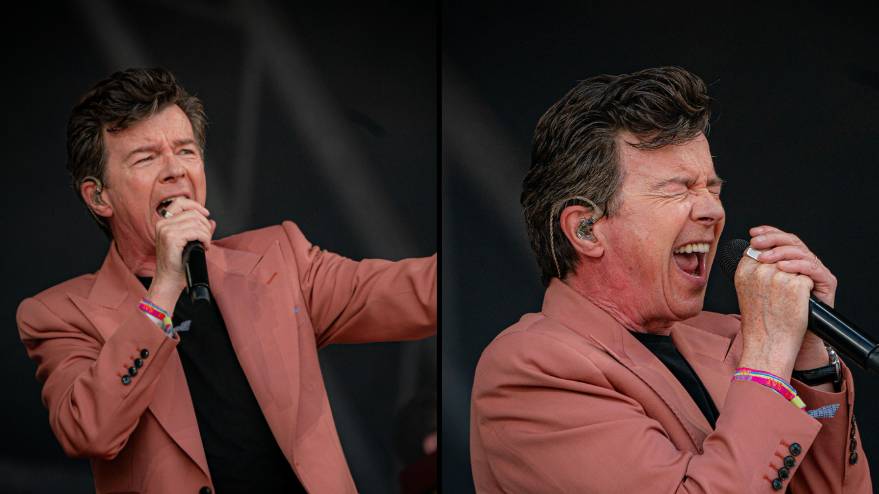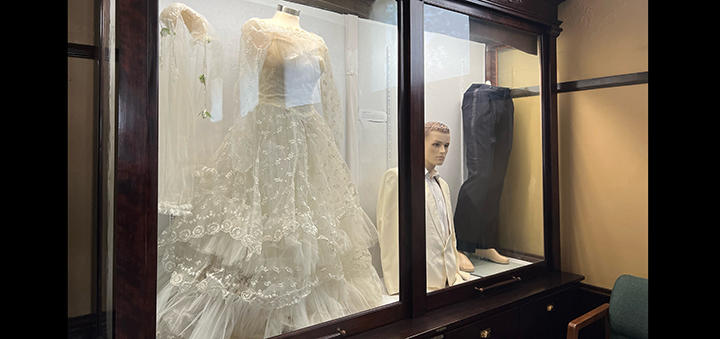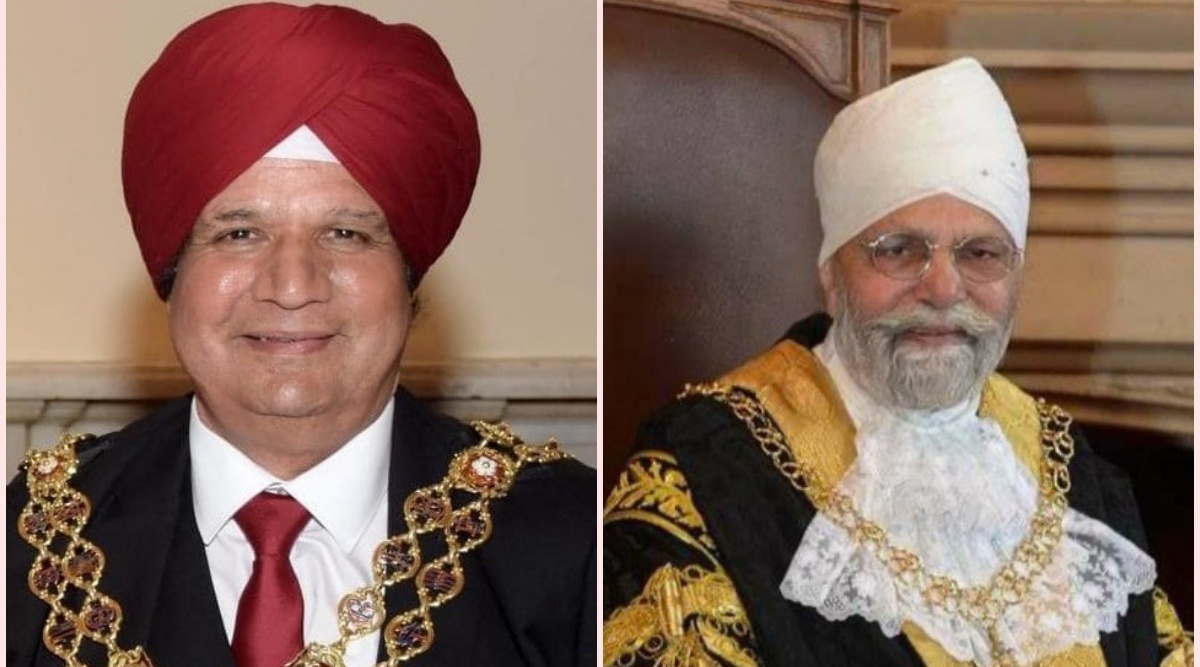When Romeo met Pep: The story of Lavia, Guardiola and a trip to Belgium

It was June 2019 and Pep Guardiola had accepted Kevin De Bruyne’s invitation to come to Belgium. A 15-year-old Romeo Lavia was on a nearby pitch.
Guardiola, as you would expect, was transfixed by the game in front of him. Eyes followed the ball and the brain captured players’ movements. All cogs were whirring.
Lavia was the heartbeat within Anderlecht’s midfield, showing the type of superiority his coaches had grown accustomed to watching. During the normal season, he had been playing with boys two years above him.
“He was two years younger and he was a nice guy,” says Jules Houttequiet, who was a team-mate of Lavia’s in Anderlecht’s youth team. “He never lost the ball. He was so calm.”
But for the KDB Cup, an international youth event for under-15 sides, he was back with team-mates his own age.
“When he was young and playing eight-versus-eight games, I remember thinking he was an interesting talent even then,” Jean Kindermans, Anderlecht’s head of academy, tells The Athletic. “But once he started to play 11-against-11 at under-13s level, we discovered someone with special qualities, special characteristics.”
Anderlecht won the tournament and Lavia, quiet off the pitch but confident on it, shone. Guardiola went back to City and remembered the name. He expressed admiration to Lavia’s compatriot and former Anderlecht player Vincent Kompany, who relayed the message to ex-City team-mate and Anderlecht’s under-21 coach Craig Bellamy. Bellamy was not exactly surprised. He was already, according to Kindermans, “charmed” by what he saw.
“Pep was there one or two days and it is fair to say Romeo impressed,” smiles Kindermans. “A few months later, we had a feeling it would be difficult to convince him to sign his first contract.”
A change to the ruling in Belgium a year earlier meant Anderlecht could offer Lavia a professional deal at 15. This, in theory, would prevent precocious talents from moving abroad or mean they were not just biding their time until they turned 17 and could sign overseas.
But Anderlecht felt vulnerable. They knew of Guardiola’s interest and if he, of all people, endorsed Lavia, then surely other European clubs would not be far behind.
By that stage, Kompany had rejoined Anderlecht as player-manager and was tasked with convincing Lavia, who grew up playing on Brussels fields less than five kilometres away, to stay.
“The guy is a little bit shy and I had difficulties in reading him,” says Kindermans. “That’s why he’s a special guy. There were two players in that year other teams wanted: Romeo and (Mario) Stroeykens. Vincent and his assistant Craig (Bellamy) talked to Romeo and tried to convince him to stay. After that, I asked the coach of the national team, Roberto Martinez, to speak to him. That was my last chance.”
Martinez accepted and Kindermans went with Lavia and his parents to meet the national manager at Belgium’s headquarters in Brussels. But it was Stroeykens, in a similar predicament, who spoke with Martinez first.
“Stroeykens entered with his father,” recalls Kindermans. “When he came out after the meeting, I had the feeling they would sign for Anderlecht and they did so a few weeks later. Then I went in with Romeo. When I came out, I was not as convinced.
“When you are looking at a player you have known many years, you sometimes feel what they are delivering is normal. But when an external eye comes in, they discover something exceptional. Craig and Vincent told me after games that Romeo is a very special guy. So Guardiola probably saw special qualities that we felt were normal and didn’t consider that was special; he was right.”
Kindermans spoke to Lavia’s father and was informed the teenager would not be signing a professional contract at Anderlecht. After joining the club on July 1, 2012, eight years later he left, signing with Manchester City.

“I never had a single problem with him or his parents,” says Kindermans. “Convincing a young player to sign is not that difficult, but with Romeo, it felt different. I had many, many talks with his parents, especially with his father, yet I never discovered what his real ambition was — staying or leaving.
“So it surprised us when he left. We were disappointed and a little bit deceived. Why are you going to such a big club in a country where it’s more difficult to go through the youth system into the first team?”
Lavia largely played in midfield throughout his developmental years and moulded his game on deep-lying midfielders. City captain Fernandinho was a key role model.
“Fernandinho knows what he’s doing,” said Lavia. “He doesn’t run just to run. He’s like the brain of the team. When you’re young you want to run — left, right — but he knows what he’s doing so he won’t run as much but will still be effective. That’s something I keep learning from him.”
Lavia had metronomic qualities that wedded seamlessly to City’s principles of play. Working under Jason Wilcox, Southampton’s incoming director of football, he was swiftly promoted to City’s Elite Development Squad, carving out a position as the No 6 in a 4-3-3 shape.
“His best position is as a low playmaker because he can deliver passes,” says Kindermans. “He’s always calm on the ball. You can give him it under pressure and he will solve the problem. He is going to have a brilliant career.”
Even last season, in a Southampton dressing room fragmented between young and old, the Belgium international was one of the most conscientious learners in the squad, taking on board the advice of senior players.
“At Anderlecht, we spoke Dutch and French,” says Houttequiet. “Romeo spoke with most of the team because he could speak both languages. Not everyone could do that. There are a lot of guys that are egocentric and not so social. But with Romeo, he was very kind and spoke to everyone.
“The thing I remember is that he was so calm. You couldn’t see a difference between Romeo and a guy who was 30 years old.”
Lavia signed with Elite Project Group agency and is represented by Emeka Obasi, who had existing relationships with several Premier League clubs, including Chelsea, Manchester City and Southampton. Though Obasi would plot Lavia’s career trajectory, Lavia’s father has always been there for guidance, too.
“When he left for City, during a period where a few months later Covid-19 influenced every sports event around the world, I thought he was going to struggle and be depressed,” says Kindermans. “He was far away from his parents, friends and his environment. But I received information through Vincent that he was doing very well and City were tremendously happy with him.”
Fondness for Lavia did not equate to first-team opportunity, however. After just 18 months at City, the lack of game time was threatening to become a sticking point. Guardiola was candid in admitting he could offer no reassurances. Lavia, deep down, knew he was good enough to be a starter in the top flight.
Following interest from Leeds United, Southampton agreed a deal worth £10million ($12.6m) for the then-18-year-old in July 2022. Obasi is close to Joe Shields, who was Southampton’s new head of recruitment at the time, but the parameters of the deal to sign Lavia predated Shields. Such was City’s reluctance to let him go, they installed a considerable sell-on percentage and a £40million buy-back clause that comes into play in 2024.
“I just looked at the young player next to Prowsey (James Ward-Prowse),” Nathan Redmond, who was at Southampton when Lavia joined, tells The Athletic. “Romeo Lavia… unbelievable quality.”
“Romeo was a talent,” recalls midfielder Oriol Romeu. “If you’re that young and playing that well, you’re going to be special.”
Team-mate’s premonitions were validated. In a chaotically fraught campaign that ended in relegation, Lavia was unequivocally Southampton’s standout player. He stepped out of the shadows and demonstrated his talent in the Premier League, resulting in Lavia making his debut for Belgium’s senior side in March.
Southampton know his value. They turned down a £50million verbal offer from Chelsea just six weeks after he signed. This summer, Lavia will fetch the most money of any player sold by Southampton.
“This is a guy with an extreme capacity to adapt to new clubs, new people and new trainers,” says Kindermans.
“I don’t see any club he wouldn’t suit with his intelligence. Romeo is very professional and always works hard on his health. Mentally he’s very strong because refusing to sign at Anderlecht and finding your way in England is fantastic.”
Almost all of the top six have registered interest and held informal talks. Indeed, scouts who came to St Mary’s in the final months of the season noted how Lavia continued to stand out in an otherwise dysfunctional team.
“I knew he was good, but I didn’t think it was going to be in such a short period,” laughs Houttequiet.
For Kindermans and Anderlecht, the connection with Lavia does not end there. Attention is now on Romeo’s brother, Joakim, captain of Anderlecht’s under-14s.
“Congrats to Romeo on his achievement,” Kindermans concludes. “I don’t think he will have difficulties finding a new club, but we are going to focus now on his brother. Joakim is totally different but as talented. But don’t worry, I’m sure all the big teams in Britain know him already.”
(Top photo: Virginie Lefour/Belga Mag/AFP via Getty Images)












